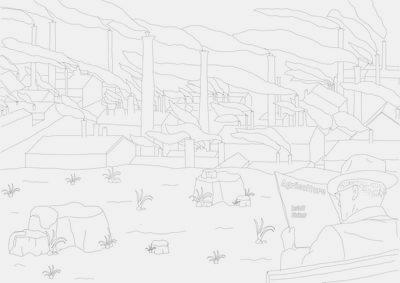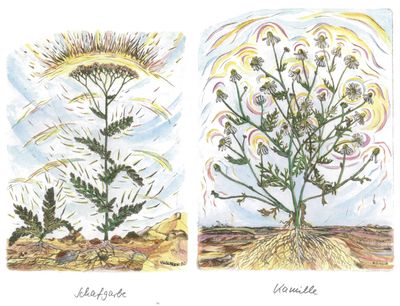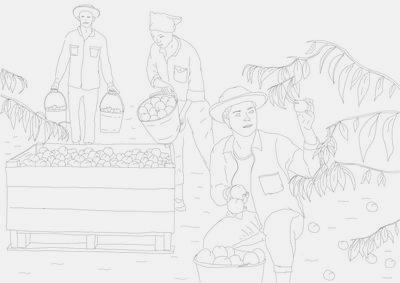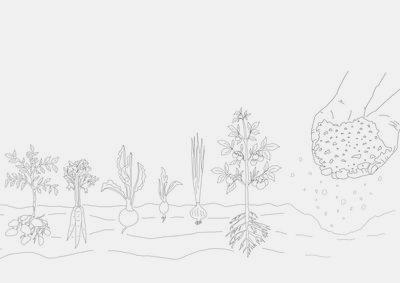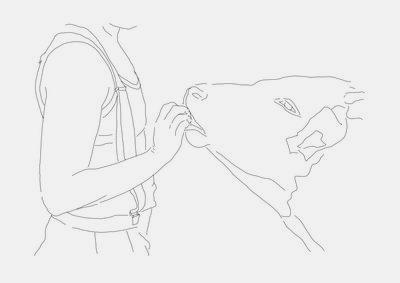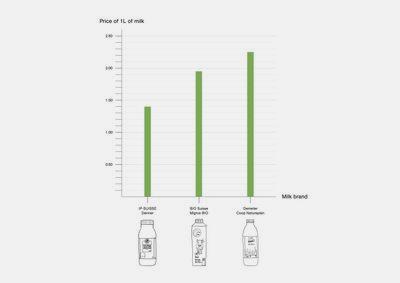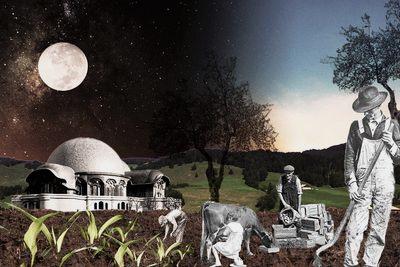AtlasBiodynamic Agriculture:
The Farm as a Living Organism Claudia da Silva Bütikofer, Martino Galli, and Jennifer Braghetti
In response to the pollution caused by industrialisation and the increasing use of chemicals in agriculture in the early 1900s, Rudolf Steiner concluded that Western society would gradually destroy itself and the earth if it did not take into account the connection between the spiritual and physical worlds. His ideas laid the foundation for what we know today as “Demeter” or “biodynamic” agriculture.
Rudolf Steiner, an Austrian scientist and philosopher born in 1861, is known for his spiritual approach to knowledge called anthroposophy, according to which all living beings are able develop their inner potential by accessing the holistic world. The anthroposophic movement, founded in the early 20th century, was based at the Goetheanum in Dornach, near Basel.
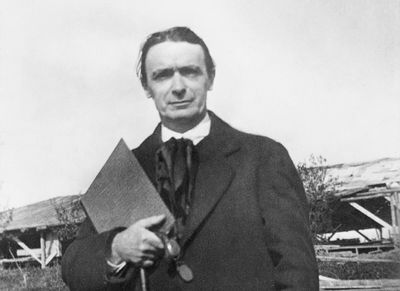
Source: Liechtensteinische Walderfschule.
Steiner applied his anthroposophic approach to farming during a series of eight lectures for farmers, the Agriculture Course, In the small Silesian town Koberwitz (now Kobierzyce in Poland) in 1924. He proposed a farming practice that deals with the movements and energy of living organisms. The “Anthroposophical Farmers Research Group” started to immediately test Rudolf Steiners indications on their farms as “biodynamic” agriculture. Three years later they founded a cooperative for the use of products using the biodynamic method. His teachings were later collected and published in a book with the title Agriculture Course, which to this day has been translated into many languages. Today, 100 years after the Agriculture Course, about 413 farms manage 8,000 hectares of land in Switzerland according to the Demeter label, which grounds on biodynamic farming.
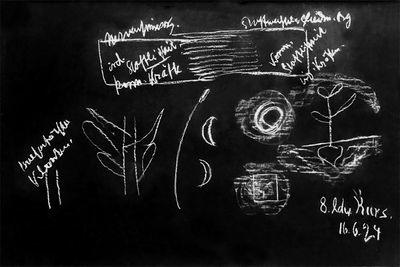
Source: Anthroposophie, 2017.
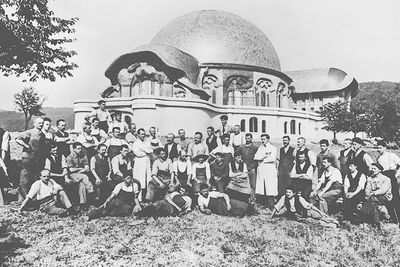
While organic agriculture shares similar aims and ideals with biodynamic agriculture, what makes biodynamics different is the metaphysical and spiritual attitude towards farming, gardening, food, and nutrition. Biodynamic farmers work “in rhythm with the universe.” In the biodynamic calendar, it is planting time when the moon descends, because the descending moon phase generates vitality especially in the roots of the plants. In the remaining time, when the moon is ascending, vitality characterises the upper part of the plant to the flowers. Different agricultural practices are therefore recommended to be carried out in one of these two periods. For example, suitable works when the moon is descending are soil cultivation and planting, while harvest fits the ascending lunar phase better.
Biodynamic farmers work “in conversation with nature,” to avoid destabilising ecosystems, particularly the soil. Hand labour is to be preferred over mechanised labour as much as possible, therefore working conditions in a biodynamic farm are generally more intense than in a traditional farm. In biodynamic agriculture, a farm is considered as a living organism which is composed of many interdependent parts. Following a holistic and dynamic method, biodynamic farmers strive to establish an ecological balance between all these elements that constitute the farm, with the purpose of meeting the needs of consumers in a healthy way.
The use of chemical-free and organic preparations makes the soil richer in humus (therefore more fertile), more crumbly and well structured, so that it is permeable to air and water. This produces a climate in which microorganisms thrive and provide soil activity that promotes growth and life of plants, as well as animal health. Some examples of biodynamic preparations used in Demeter farms are cow horn manure and horn silica, which are then sprayed into the soil or onto the plants, stimulating soil activity and plant immunity.
On a biodynamic farm, animals are kept in such a respectful way that they can behave according to their nature. For example, cows can keep their horns and are fed with organically grown grass and hay. Alternative medicine and homeopathy are used as primary option to treat animals in case of illness, the administration of antibiotics is avoided as much as possible. In a Demeter farm, what characterizes the attitude towards animals is respect, appreciation, and gratitude.
Biodynamic farmers affirm that even though farm work is definitely hard, working in harmony with nature and respective collaborators is undoubtedly fulfilling. Establishing a community in a challenging and increasingly competitive industry like agriculture is therefore crucial. Demeter farmers are grateful to be able to be a part of a community where fair partnerships are promoted and in which a healthy human development represents a fundamental concept.
In 1928, the Demeter label was founded. Demeter is the world’s first ecological food and farming trademark for certified biodynamic products, namely products that result from practices in which Steiner’s principles and values were originally applied. The Demeter certification verifies that biodynamic products meet international standards in the production and processing of sustainable food. It is the organic food products label with the strictest regulations. The requirements on production, processing, and labelling are prescribed in the International Biodynamic Standards.
In biodynamic agriculture, processing is understood as a gentle refinement process that must be meticulously carried out. To maintain a high level of quality, Demeter is committed to regulate processing more strictly than any other labels. Chemical pesticides and genetic engineering methods are generally prohibited. Only very few specific auxiliaries and additives are permitted in the process. For example, Demeter milk is not homogenised, yogurt does not contain milk powder, and in wine cellars, spontaneous fermentation with natural yeast is applied.
Biodynamic farming requires more work than industrial farming which also reflects in the prices for Demeter products. For example, the renunciation of the use of chemical additives, fertilisers and pesticides means that more people must be employed to take care of the agricultural vegetation. The harvest is usually lower than on a conventional farm, and high animal welfare implies more labour and costs, for example regarding the organic feed with which they are fed. Finally, additional costs are also to be attributed to the certification and inspection of organic products, their processing, and marketing.
Biodynamic agriculture offers therefore regenerative solutions for the future. We believe that in the last century this conscious and responsible way of farming has proven itself to be an adequate alternative to a strictly industrial kind of agriculture. Through biodynamics we can develop new ways to understand and react to the needs of our planet, to unfold new and creative solutions to produce sustainable food.
